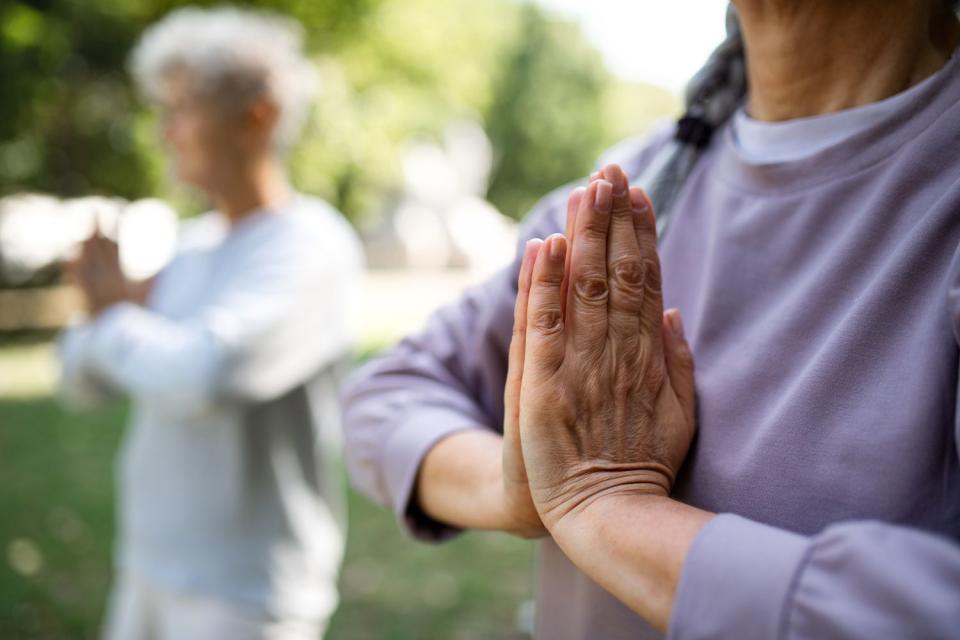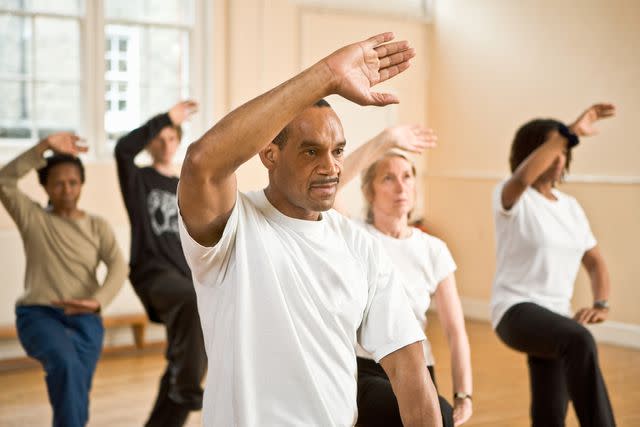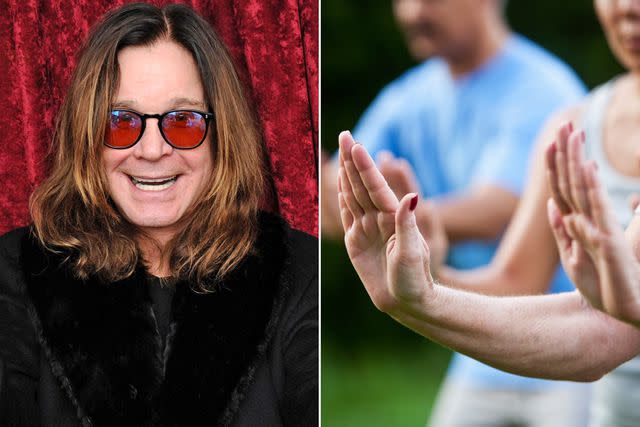Tai Chi Slows Down Symptoms of Parkinson’s Disease, Study Finds
Ozzy Osbourne, who was diagnosed with Parkinson’s in 2003, shared that he recently started practicing tai chi to help with symptoms of the disease

Getty
Tai chiPracticing tai chi can slow down symptoms of Parkinson’s disease by years, a new study finds.
In the study — published Tuesday in the Journal of Neurology Neurosurgery & Psychiatry — researchers from the Shanghai Jiao Tong University School of Medicine monitored Parkinson’s patients for up to five years.
One group of 143 patients practiced tai chi twice a week for an hour while another group of 187 patients continued with their standard care for Parkinson’s without practicing tai chi.
Researchers found that symptoms of Parkinson’s disease progressed slower in those who practiced tai chi. Falls, dizziness and back pain were significantly lower among these patients. Additionally, cognitive function deteriorated more slowly in those who practiced tai chi.
“Our study has shown that Tai Chi retains the long-term beneficial effect on PD, indicating the potential disease-modifying effects on both motor and non-motor symptoms, especially gait, balance, autonomic symptoms and cognition,” researchers said.
“The long-term beneficial effect on PD could prolong the time without disability, leading to a higher quality of life, a lower burden for caregivers and less drug usage,” they added.

Tim Platt / Getty Images
Tai chiRelated: Ozzy Osbourne Says He's Trying Tai Chi to Help with Parkinson's Disease: 'It's a New Adventure'
Tai chi, which originated in China, is a practice that involves a series of slow gentle movements and physical postures, a meditative state of mind, and controlled breathing, according to the National Institutes of Health. It’s a form of martial arts centered around health promotion and rehabilitation.
Parkinson’s disease is a progressive brain disorder that affects the nervous system, the National Institutes of Health says. It causes unintended or uncontrollable movements, such as a tremor in the hands, arms, legs or head, muscle stiffness, and difficulty with balance and coordination.
Symptoms typically worsen over time and as the disease progresses, people may have difficulty walking and talking. Parkinson’s can also cause mental and behavioral changes, sleep problems, depression, memory difficulties, and fatigue.
Never miss a story — sign up for PEOPLE's free daily newsletter to stay up-to-date on the best of what PEOPLE has to offer, from celebrity news to compelling human interest stories.

Ilya S. Savenok/Getty Images; Getty
Ozzy Osbourne, who was diagnosed with Parkinson’s in 2003, recently shared that he started tai chi to help with symptoms of the disease. The 74-year-old rock icon shared the news during the latest episode of The Osbournes Podcast.
“I’m going to try and do [tai chi], it's good for balance,” Ozzy announced on the show as he was joined by wife Sharon, 70, their daughter Kelly, 38, and son Jack, 37.
“Oh my God, this is the best news I have heard in so long,” responded Kelly. “Jack, do you realize that they say that it's the No. 1 thing to help with mobility and Parkinson’s, is tai chi?”
“Yeah, I believe it, it's low impact,” Jack said before Kelly added, “And we’ve been trying to get Dad to do it for [ages].”
“It's the balance that helps me,” Ozzy explained. “Well, I want to get back, you know, and all the options are open for me,” he later said.
The following week, the former Black Sabbath star’s family said he already seems to be making progress since starting tai chi.
“I’ve only had two lessons so I’m not really a master yet. But I’m finally relaxing,” Ozzy added.
For more People news, make sure to sign up for our newsletter!
Read the original article on People.


